Over the course of the semester, PCURs will explain how they found their place in research. We present these to you as a series called The Project That Made Me a Researcher. As any undergraduate knows, the transition from ‘doing a research project’ to thinking of yourself as a researcher is an exciting and highly individualized phenomenon. Here, Bennett shares his story.
~~~~~~
This is hardly the conventional idea of a research project: for one thing, I don’t remember it, and it’s hardly a lab or an archive project. But, unlike the writing seminar paper I wrote on Osama bin Laden, or my first lab experience with yeast genetics, this is a project every PCUR reader has gone through. So here’s baby Bennett, to take you through the first and most exciting research project any of us has participated in: discovering the world as an infant.
1. Bury Yourself In The Literature
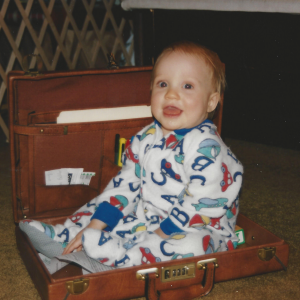
You can’t start a research project without a deep background on the question you’re asking in the first place. That’s pretty difficult for an illiterate baby: the best I could do was crawl into the papers in my Dad’s briefcase, and hope some knowledge rubbed off, or that I would at least get a better understanding of how the world around me was shaped. If you’re literate, then you’ve got a huge advantage: read everything you can (even if you don’t understand it all at first – we’ll get to that later).
2. Question everything
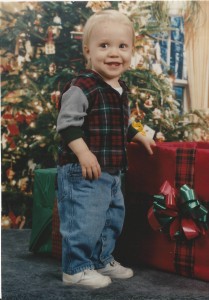
In a way, babies are the best researchers, because they have literally no idea how the world works. When everything is new, no hanging bobble stands un-investigated, no toy stands untasted (much to my parents’ chagrin). As toddlers or teenagers, no statement from our parents comes unchallenged with “why, mommy, why?” No result should go unquestioned either.
3. Replicate Replicate Replicate
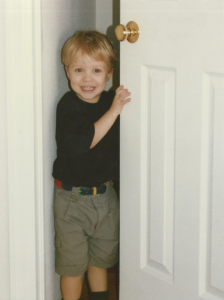
One of the most important things to question is your own results. Are they generalizable? Does the reaction still happen when the beaker isn’t in the sunlight? Does gravity still work today? (The best way to test this, of course, is dropping food, the messier the better, from your high chair) Does that door swing the same way 5 minutes later? *Gasp* It still works the next day!
4. Communication is everything
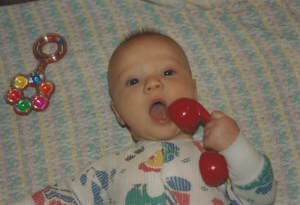
There’s a reason our first words are such a milestone. Only when we can communicate “I’m hungry” or “Daddy briefcase fell” (my first full sentence) can we share what we’re discovering about this wonderful world. If you don’t understand your results well enough to put them in words, to share them with the scientific community, can you really say you’ve done research at all?
5. You need a mentor
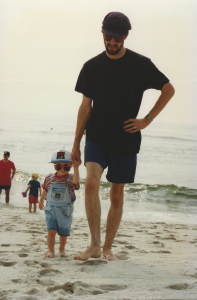
We owe so much to them – they allowed us to explore while nudging us in interesting directions, they were patient while we struggled to take our first steps, they showed us whole new worlds of wonder and imagination. All for the joy of watching minds develop… I’ve lost track of whether I’m talking about parents or research advisers.
6. Novelty is thrilling
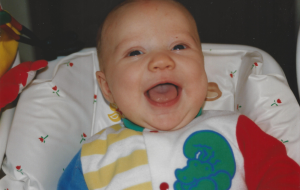
Through an infant’s eyes, everything is new, fresh, exciting. Everything is the most amazing thing in the world right now. I think the best researchers are the ones who never grew out of that.
7. Sometimes your results aren’t novel
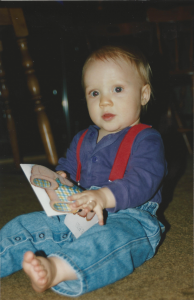
You were not the first to realize that objects fall down when they’re dropped, or that cats don’t like their tails pulled. But that didn’t diminish the wonder you felt when you saw them. Perhaps a eureka moment of seeing something for yourself doesn’t make up for not being the first to publish, but it’s a big part of a life of research.
8. Get Messy
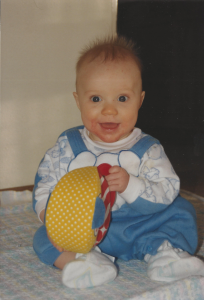
What’s the fun of research if you don’t make a few mistakes, toss around a few blatantly wrong ideas, get your hands (or even face) a little dirty? (Though not, of course, without the requisite Personal Protective Equipment). I made countless messes as a baby, and still make mistakes as a researcher, but that’s how we learn.
So no, I don’t remember my first research project. But the lessons it taught me will stay with me forever. And we all learned these lessons. All of us are, literally, born to be researchers.
~Bennett McIntosh, Natural Sciences Correspondent

